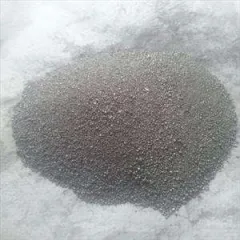Molybdenum Carbide: A Pioneer in High-Performance Catalytic Products and Future Energy Applications
Molybdenum carbide (Mo ₂ C), as an unique shift steel carbide, shows exceptional physical and chemical residential properties, making it an exceptional stimulant in various reactions, especially in hydrogen production and co2 reduction, with wide application leads. Mo ₂ C is made up of molybdenum (Mo) and carbon (C), including a high melting point (~ 2690 ° C), excellent electric conductivity, thermal security, and mechanical toughness. Most importantly, its surface area is rich in energetic websites that can properly adsorb and activate particles, making it an optimal catalytic product. High-quality Mo ₂ C can be prepared utilizing methods such as straight carburization, chemical vapor deposition (CVD), sol-gel procedure, and microwave-assisted synthesis. These sophisticated methods give a solid foundation for discovering Mo ₂ C’s potential in lots of applications.
(Molybdenum Carbide Powder)
Over the last few years, research has shown that Mo ₂ C masters multiple locations, including effective hydrogen evolution response (HER) drivers, outstanding CO ₂ reduction stimulants, exceptional hydrodesulfurization (HDS) efficiency, and outstanding lithium-ion battery anode products. For instance, in acidic environments, Mo ₂ C can attain fast and stable water splitting to generate hydrogen with low overpotential and Tafel incline close to theoretical worths. In transforming CO ₂ right into important chemicals like formic acid or methanol, Mo ₂ C shows high selectivity and conversion effectiveness. Throughout oil refining, Mo ₂ C can finish HDS reactions at lower temperatures with higher selectivity and task. As a lithium-ion battery anode, it offers higher capacity and cycle life. These research study findings have significantly pushed the commercial application of Mo ₂ C from research laboratory setups.
Mo ₂ C showcases considerable applications across various industries. In hydrogen manufacturing and storage space, the Dalian Institute of Chemical Physics, Chinese Academy of Sciences, created a reliable electrolyzer based upon Mo ₂ C nanosheet selections, accomplishing stable water splitting at area temperature, reducing power usage, and improving hydrogen pureness. For clean energy conversion, Stanford College produced a photoelectrochemical tool made up of Mo ₂ C nanowires that can straight convert carbon monoxide ₂ right into fluid fuels under light conditions, minimizing greenhouse gas emissions while giving tidy fuel sources. In environmental protection, limit Planck Institute for Strong State Research discovered that Mo ₂ C-modified activated carbon fibers dramatically improve SO ₂ capture performance and are easily restored for duplicated usage. Additionally, in new energy storage tools, researchers at KAIST reported a sodium-ion battery using Mo ₂ C as the anode product, defined by quick charge-discharge prices, outstanding cycle stability, and energy density going beyond 400 Wh/kg, guaranteeing for future smart grids and electric vehicles.
()
Regardless of substantial success in Mo ₂ C products and relevant technologies, challenges remain in practical promotion and application, such as price problems, large-scale manufacturing modern technology, ecological kindness, and standardization. To overcome these obstacles, continuous development and improved cooperation are essential. On one hand, growing essential research study to check out new synthesis methods and improve existing processes can constantly reduce production costs. On the other hand, developing and refining sector requirements advertises coordinated advancement amongst upstream and downstream companys, constructing a healthy and balanced community. Universities and research study institutes ought to enhance academic investments to cultivate more high-grade specialized skills. In summary, Mo ₂ C, as a very promising high-performance catalytic product, is slowly transforming different facets of our lives. With recurring technological maturation and perfection, Mo ₂ C is anticipated to play an irreplaceable role in a growing number of areas, bringing more convenience and benefits to human culture in the coming years.
TRUNNANO is a supplier of Molybdenum Carbide with over 12 years of experience in nano-building energy conservation and nanotechnology development. It accepts payment via Credit Card, T/T, West Union and Paypal. Trunnano will ship the goods to customers overseas through FedEx, DHL, by air, or by sea. If you want to know more about Molybdenum Carbide, please feel free to contact us and send an inquiry(sales8@nanotrun.com).
All articles and pictures are from the Internet. If there are any copyright issues, please contact us in time to delete.
Inquiry us

